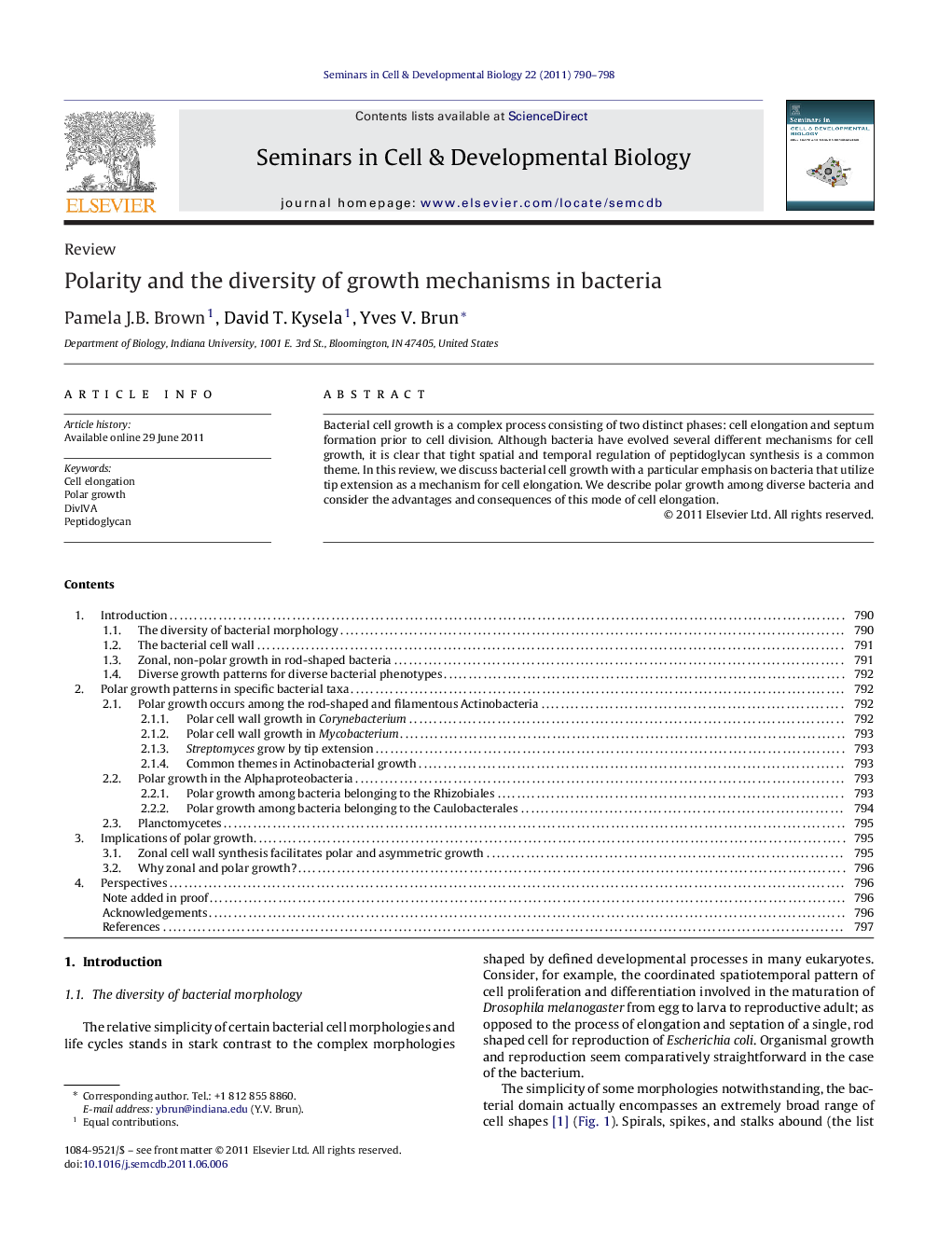| Article ID | Journal | Published Year | Pages | File Type |
|---|---|---|---|---|
| 2202886 | Seminars in Cell & Developmental Biology | 2011 | 9 Pages |
Bacterial cell growth is a complex process consisting of two distinct phases: cell elongation and septum formation prior to cell division. Although bacteria have evolved several different mechanisms for cell growth, it is clear that tight spatial and temporal regulation of peptidoglycan synthesis is a common theme. In this review, we discuss bacterial cell growth with a particular emphasis on bacteria that utilize tip extension as a mechanism for cell elongation. We describe polar growth among diverse bacteria and consider the advantages and consequences of this mode of cell elongation.
• Polar growth is found in at least three anciently diverged clades of bacteria. • Cellular elongation occurs primarily by polar growth in some bacteria. • Polar growth represents a specific kind of zonal growth. • Zonal growth allows the synthesis of specialized structures called stalks. • Constrained zonal growth facilitates development of diverse morphologies.
